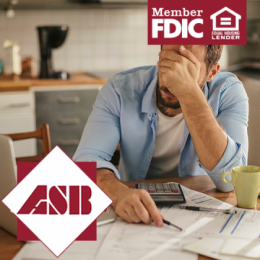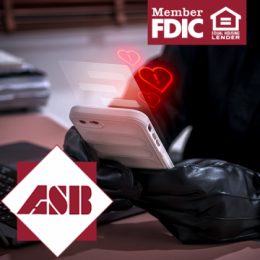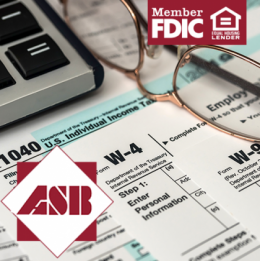
Do you have some bad budgeting habits that desperately need to be broken? Acknowledge and break your bad budgeting habits with these helpful tips on how to tackle them to meet your financial goals.
1. Unnecessary Spending
If you spend an unnecessary $30 a day for a year, that can total out to over $10,000. Nonessential spending leaves you less money to spend on your essentials and less to put towards your savings. If you spent $5 each day during the week on coffee, you would be spending around $1,300 a year – that could be a huge chunk towards your savings, vacation fund, rent, mortgage, etc.
How To Break:
-
Start making your purchases with cash to physically see the money you are spending on each thing.
-
Fix your meals, snacks and coffee at home.
-
Allocate a set amount each month for nonessential spending (food, meals out, drinks, shopping, etc.).
-
Pause for a few days before purchasing to ensure if you need it and think through how it will affect your budget.
-
Eliminate memberships and subscriptions you could go without. That amount could go towards your budget for something you would rather have more.
2. Not Saving for the Future and/or Emergencies
Saving for the future and saving up an emergency fund are huge assets to your budget. Put yourself in a good financial position if an emergency comes up by allocating a set amount each month to both your emergency fund and your savings account.
How To Break:
-
Set an amount you need for a good emergency fund.
-
Plan how much you need to allocate to your emergency fund each week or month to hit your goal.
-
Create a separate savings account and label it an emergency fund.
-
Plan for big expenses coming up and how much you need to have set aside for those.
-
Plan out 6 months and a year for your savings goals and how you can efficiently meet your goal.
-
Automate the amount to go to your savings and retirement saving.
-
Find a side gig or trim expenses to have extra to build your savings accounts.
3. Bad Credit Card Spending
It is time to bust any bad credit card habits because they can haunt you in the future. Do not allow yourself to have credit card debt. Charging too much on your credit card can run up high-interest debt, false sense of how much money you truly have, take away from positively impacting your savings accounts, hurt your credit score, and potentially lead to filing for bankruptcy.
How to Break:
-
Make more than your minimum payment each month to eliminate interest charges.
-
Create a budget to balance all money coming in and going out.
-
Delegate what should and shouldn’t be put on the credit card.
-
Set check-ins with yourself to look at what you’ve charged on your credit card.
-
Give yourself a due date planned each month to pay your credit card bill.
4. Not Sticking to Your Budget
If you have not been sticking to your budget, you’re losing control of your finances in the short term and long term. It is time for a budget refresh to nail down what financial decisions you should be making to get back in the right direction.
How to Break:
-
Create a zero-based budget, here is an example: https://www.experian.com/blogs/ask-experian/what-is-zero-based-budgeting/
-
Calculate what your monthly expenses are and comb through what can be removed or lessened each month.
-
Monitor your spending and set check-ins with yourself. Utilize a budgeting app or spreadsheet to easily access.
-
Set short-term and long-term financial goals.
-
Try a spending freeze – allow no spending for a set number of days to save a little extra for your savings or emergency fund.
-
Monitor your credit score.
Acknowledging and planning to break any bad budgeting habits now is your key to financial success in the short and long term. There is no perfectly set solution, so it will require some creativity within your personal lifestyle and financial goals. Apply these tips now to get your budget back in check!










